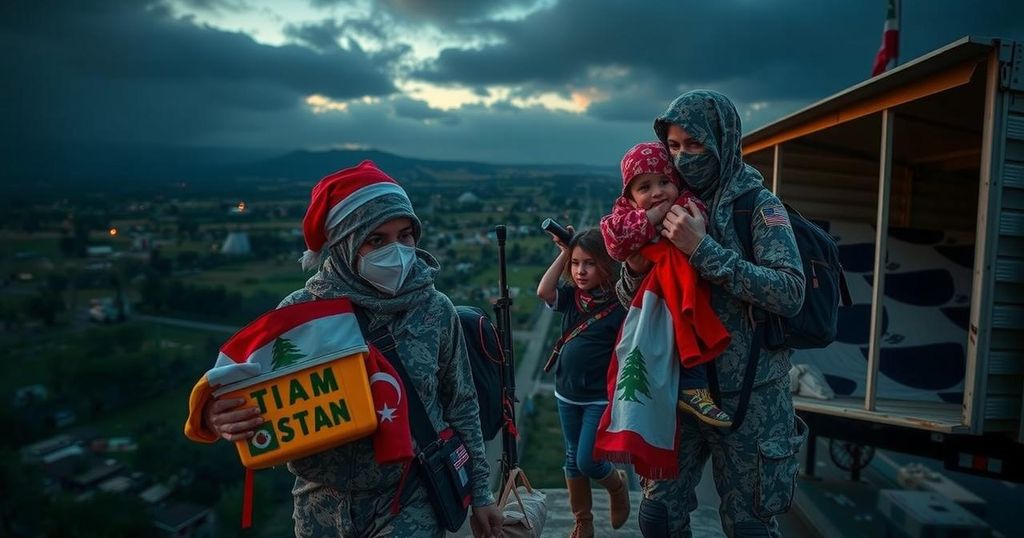Lebanese Refugees Begin Return from Iraq as Ceasefire Holds
Following a ceasefire between Israel and Hezbollah, displaced Lebanese families are returning home from Iraq despite widespread destruction. They face challenges regarding their damaged homes and uncertain futures, while some express reluctance to return due to concerns about living conditions. The situation underscores the complexities of refugee repatriation amid ongoing conflict and humanitarian needs.
Lebanese families who had sought refuge in Iraq due to the ongoing conflict between Israel and Hezbollah are beginning to return to their homes in southern Lebanon, following a recently established ceasefire. Many families are making their way back despite significant destruction in their hometowns. Ali Abdulla, a resident of southern Lebanon, expressed determination, stating, “After two months, we are returning to our homeland. We will return even if we find our homes destroyed; we will sit on the ground.” Reports indicate that over 20,000 Lebanese fled to Iraq since hostilities began, with around 800 returning to Beirut each week. The Iraqi government has played a crucial role in providing support to displaced families, offering accommodation, healthcare, and meals.
The ceasefire, mediated by the United States and France, aims to halt the violence that has resulted in over 3,700 deaths in Lebanon since the conflict’s escalation last year. While many are eager to return, some express hesitation due to the uninhabitable conditions in their homes, damaged by war. Rabea Ali, a mother of four, articulated the struggles of returning to a ruined home: “I no longer have a home; everything is destroyed. If we return, where will we sleep, on the street? What is the future of our children if they stay in Lebanon? No education, no future, and no home.” Despite these concerns, some, like Omar al-Ali, have begun to build new lives in Iraq, seeking stability for their families.
Others, however, yearn for a return to their homeland. Eleven-year-old Ali Hassan stated, “I hope to return to Lebanon to visit [my friend’s] grave and pray for him.” As the ceasefire holds and returns continue, the situation remains complex, with many families facing difficult choices amid uncertainty about their future in Lebanon.
The return of Lebanese refugees from Iraq follows a ceasefire between Israel and Hezbollah, mediated by international powers. The conflict has spurred large-scale displacement, with thousands of Lebanese families fleeing to Iraq amid violence and destruction. The humanitarian crisis has attracted attention as displaced individuals seek to return to their homeland while grappling with the severe damage to infrastructure and uncertainty regarding safety and living conditions in Lebanon. As hostilities cease, the contrasting motivations of refugees highlight the challenges ahead for families choosing between returning home and establishing a new life in exile.
In summary, Lebanese refugees are cautiously returning to their homes in southern Lebanon due to the recent ceasefire between Israel and Hezbollah but face harsh realities upon their return. Many homes are uninhabitable, raising concerns about the future of displaced families. While some express determination to return to their homeland despite destruction, others remain hesitant, fearing for their children’s future. The ongoing humanitarian response is critical in addressing these challenges as families navigate their uncertain circumstances.
Original Source: indianexpress.com




Post Comment